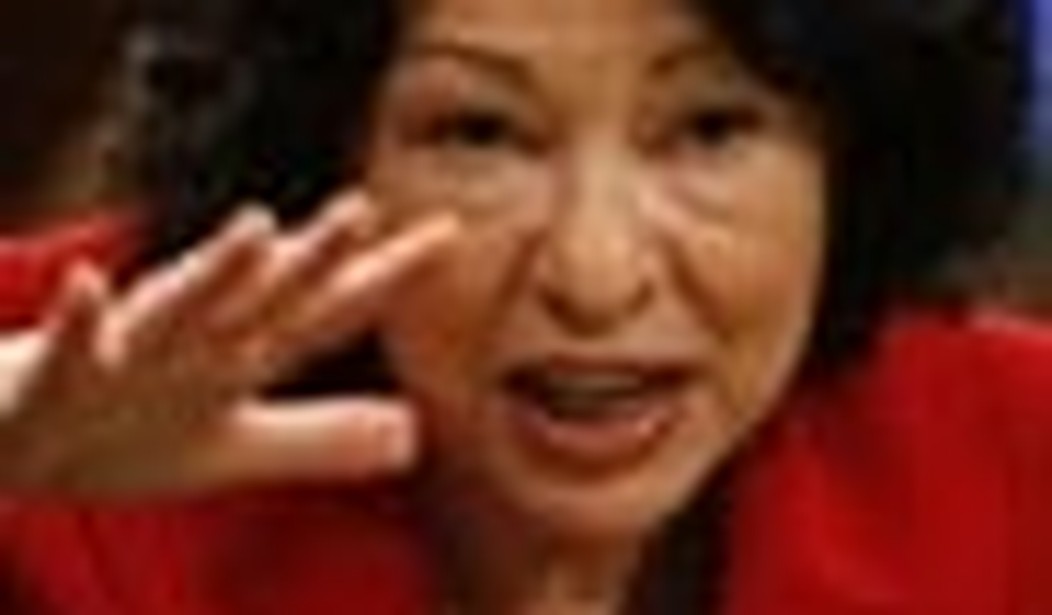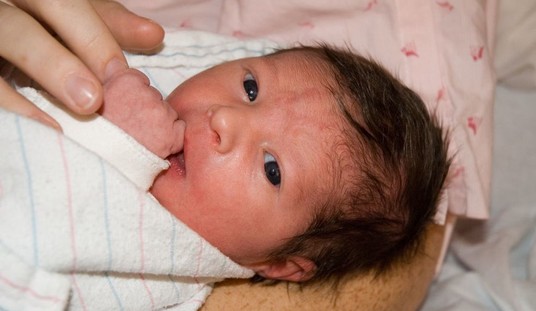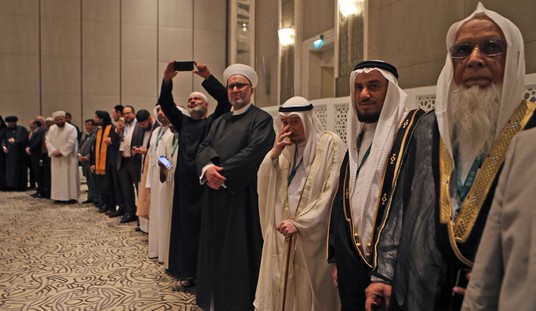The hearings on the confirmation of Sonia Sotomayor for the Supreme Court heated up yesterday. The outcome previously was thought not to be in doubt and there was speculation that she might even match Chief Justice John Roberts’ 78-vote total. But then she came before the Senate Judiciary Committee and began to tell one “jaw-dropper” (as a U.S. senator labeled one of her answers) after another, raising doubts about her credibility.
And it is not just conservatives who are disturbed. The Washington Post’s Eva Rodriguez, who had touted Sotomayor’s nomination, wrote: “I’m surprised and disturbed by how many times today Sonia Sotomayor has backed off of or provided less-than-convincing explanations for some of her more controversial speeches about the role of gender and ethnicity in judicial decision-making.” Indeed, that this the question of the moment: is Sotomayor being honest with the Senate?
From the Left, liberal law professor Louis Michael Seidman called her out for pretending to believe in something no liberal in good standing does: the ability of judges to apply the law to the facts before them. He decried her hypocrisy:
I was completely disgusted by Judge Sotomayor’s testimony today. If she was not perjuring herself, she is intellectually unqualified to be on the Supreme Court. If she was perjuring herself, she is morally unqualified. How could someone who has been on the bench for seventeen years possibly believe that judging in hard cases involves no more than applying the law to the facts? First year law students understand within a month that many areas of the law are open textured and indeterminate-that the legal material frequently (actually, I would say always) must be supplemented by contestable presuppositions, empirical assumptions, and moral judgments. To claim otherwise-to claim that fidelity to uncontested legal principles dictates results-is to claim that whenever Justices disagree among themselves, someone is either a fool or acting in bad faith. What does it say about our legal system that in order to get confirmed Judge Sotomayor must tell the lies that she told today? That judges and justices must live these lies throughout their professional careers?
Perhaps Justice Sotomayor should be excused because our official ideology about judging is so degraded that she would sacrifice a position on the Supreme Court if she told the truth. Legal academics who defend what she did today have no such excuse. They should be ashamed of themselves.
Whether or not one agrees with Seidman’s legal philosophy, there is plenty of reason to conclude, as Rodriquez did, that Sotomayor was being less than honest in her testimony. Many of Sotomayor’s misstatements were blatant and easily revealed. For example, Sotomayor testified on Tuesday in explaining her “wise Latina” speech that she had agreed with Justice Sandra Day O’Connor, who expressed the view that a wise old woman and wise old man would reach the same decision in deciding cases. In fact, Sotomayor said the opposite:
Whether born from experience or inherent physiological or cultural differences, a possibility I abhor less or discount less than my colleague Judge Cedarbaum, our gender and national origins may and will make a difference in our judging. Justice [Sandra Day] O’Connor has often been cited as saying that a wise old man and wise old woman will reach the same conclusion in deciding cases. I am not so sure Justice O’Connor is the author of that line since Professor Resnik attributes that line to Supreme Court Justice Coyle. I am also not so sure that I agree with the statement. First, as Professor Martha Minnow has noted, there can never be a universal definition of wise. Second, I would hope that a wise Latina woman with the richness of her experiences would more often than not reach a better conclusion than a white male who hasn’t lived that life.
She also testified that her speech was intended to be instructive about the need to put bias aside. But that was hardly what she had said. Instead, she told the audience in 2001:
While recognizing the potential effect of individual experiences on perception, Judge Cedarbaum nevertheless believes that judges must transcend their personal sympathies and prejudices and aspire to achieve a greater degree of fairness and integrity based on the reason of law. Although I agree with and attempt to work toward Judge Cedarbaum’s aspiration, I wonder whether achieving that goal is possible in all or even in most cases. And I wonder whether by ignoring our differences as women or men of color we do a disservice both to the law and society. Whatever the reasons why we may have different perspectives, either as some theorists suggest because of our cultural experiences or as others postulate because we have basic differences in logic and reasoning, are in many respects a small part of a larger practical question we as women and minority judges in society in general must address. I accept the thesis of a law school classmate, Professor Stephen Carter of Yale Law School, in his affirmative action book that in any group of human beings there is a diversity of opinion because there is both a diversity of experiences and of thought. … Professor Judith Resnik says that there is not a single voice of feminism, not a feminist approach but many who are exploring the possible ways of being that are distinct from those structured in a world dominated by the power and words of men. Thus, feminist theories of judging are in the midst of creation and are not and perhaps will never aspire to be as solidified as the established legal doctrines of judging can sometimes appear to be.
That same point can be made with respect to people of color. No one person, judge or nominee will speak in a female or people of color voice. I need not remind you that Justice Clarence Thomas represents a part but not the whole of African-American thought on many subjects. Yet, because I accept the proposition that, as Judge Resnik describes it, “to judge is an exercise of power” and because as, another former law school classmate, Professor Martha Minnow of Harvard Law School, states “there is no objective stance but only a series of perspectives–no neutrality, no escape from choice in judging,” I further accept that our experiences as women and people of color affect our decisions. The aspiration to impartiality is just that–it’s an aspiration because it denies the fact that we are by our experiences making different choices than others. Not all women or people of color, in all or some circumstances or indeed in any particular case or circumstance but enough people of color in enough cases, will make a difference in the process of judging. The Minnesota Supreme Court has given an example of this. As reported by Judge Patricia Wald formerly of the D.C. Circuit Court, three women on the Minnesota Court with two men dissenting agreed to grant a protective order against a father’s visitation rights when the father abused his child. The Judicature Journal has at least two excellent studies on how women on the courts of appeal and state supreme courts have tended to vote more often than their male counterpart to uphold women’s claims in sex discrimination cases and criminal defendants’ claims in search and seizure cases. As recognized by legal scholars, whatever the reason, not one woman or person of color in any one position but as a group we will have an effect on the development of the law and on judging.
Plainly hers was a call to bring ethnic and gender bias to the bench.
Sotomayor was also asked by Sen. Lindsay Graham about her work for PRLDEF and its left-wing agenda, including advocacy of taxpayer-funded abortions. She declared that she had never read the briefs and was primarily a fundraiser on the board. Many news reports and direct witnesses tell a different story. The New York Times reported:
“She just believed in the mission,” Luis Alvarez, a former chairman of its board, said of Ms. Sotomayor. “This was a highly refined group of individuals who came from the premier academic institutions. It was almost like Camelot. It was a wonderful growth period.”
But Ms. Sotomayor stood out, frequently meeting with the legal staff to review the status of cases, several former members said. And so across her 12 years on the board — she left when she was appointed a federal judge in 1992 — she played an active role as the defense fund staked out aggressive stances on issues like police brutality, the death penalty and voting rights.
The board monitored all litigation undertaken by the fund’s lawyers, and a number of those lawyers said Ms. Sotomayor was an involved and ardent supporter of their various legal efforts during her time with the group.
She also misstated her own views on use of international law, declaring that she had ruled out international law as a basis for decision-making when in fact she had previously declared that foreign laws “help us understand what the concepts meant to other countries and … whether our understanding of our own constitutional rights fell into the mainstream of human thinking.”
The question then becomes whether the nominee is being candid or whether she is not only changing her judicial philosophy — from moral relativist and advocate of identity politics to the model of judicial impartiality — to get confirmed, but actually misrepresenting under oath her record to the Senate.
That concern does in fact seem to be taking hold among at least Republican senators. In a Heritage Foundation-sponsored teleconference held after the Tuesday’s hearings, I asked Senator Jim DeMint and Former Attorney General Ed Meese about this issue. DeMint expressed concern that she had been less than candid not only in the hearing but in her private meeting with him. According to DeMint, he asked her in his office whether unborn children have “any rights.” She told him that she “had never thought about it,” a remarkable statement for any lawyer but especially for a judge who in fact has ruled on abortion cases.
As for her performance in the hearing, DeMint said that at the Republican lunch Tuesday there was a “growing concern” that she is not being forthcoming. He called her reversals a series of “hearing conversions” and confided that “increasingly more of our reasonable members” are raising the credibility issue. He dubbed her statement that she never read and was unaware of the PRLDEF legal arguments a “jaw-dropper.”
Former Attorney General Meese voiced a similar view: “What she is saying now is totally contradicted by the facts.” He also pointed to Sotomayor’s characterization of her agreement with Justice O’Connor. He explained that this “should concern people on both sides of the aisle” who should want an honest and credible judge on the bench.
Meese went onto explain that it is now critical for senators to insist that the PRLDEF documents, which have yet to be produced in their entirety for the Senate, be obtained to verify or disprove Sotomayor’s startling claim that she was ignorant of the legal positions being taken by a group for which she served both as a board member and on the litigation committee. He added that until the documents are produced the hearings should be continued. That, he said, is what must be done when “critical issues” arise “concerning the veracity of the candidate.”
It is perhaps not surprising that Sotomayor would see the need to finesse or distance herself from past positions. Her speeches and advocacy for the left-wing PRLDEF might incline significant numbers of senators to vote against her. But it is quite another thing to misrepresent her own record or feign ignorance of facts. Even senators inclined to give her a break — show “deference” to the president and his nominee — must draw the line when it comes to demanding that judicial candidates be honest and complete in their answers.
Whether Sotomayor’s evasions and misstatements prove to be her undoing will in large part rest on how she performs during the remainder of her testimony and whether the Senate demands that a Supreme Court nominee tell the truth, the whole truth, and nothing but the truth.









Join the conversation as a VIP Member